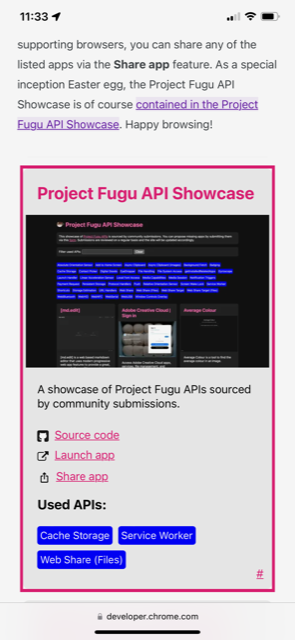

Limited across all users globally to ensure they don't become a de facto standard, so it's recommended you activate the feature in your codebase following each browser's trial guidelines for a subset of your users.Stable enough to use with real users, but they may change throughout the course of the trial.So where possible, you should implement feature detection or graceful degradation to handle the case when the feature is unavailable. Experimental, they may change and may become unavailable, including not extending beyond the experiment, and may be unavailable for some time, even if they are eventually enabled for all users.

Origin trials allow you to try out new features and give feedback to the web standards community on usability, practicality, and effectiveness.

What if you want to request a new capability? You can file an issue in the Chromium bug tracker, or you can go to webwewant.fyi and fill out a form to reach the corresponding browser vendors.
#Project fugu software#
This approach also loses the reach of the web, often being forced to choose what devices and operating systems to support, which often require different wrappers, and which further expands the security and maintenance burden.įilling these capabilities gaps is the key to fixing this and thereby enabling the web to be the software platform of the future, covering as many use cases as possible, in comparison with platform-specific SDKs. This will also force them to take on the additional security and maintenance burden of keeping both the browser fork and wrapper up to date. Those who want to develop for the web but need more different capabilities are forced to bundle their web apps in wrappers and publish them in app stores.ĭevelopers may choose to ship their own custom browser as platform-specific apps, which disproportionately increases the size of their web apps.

The web is a powerful platform, but there are still gaps in what it can solve.


 0 kommentar(er)
0 kommentar(er)
